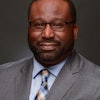N.C. Senator: Community Colleges Need to Aggressively Go After Federal Grants
RALEIGH, N.C.
North Carolina community colleges need to follow the lead of the state’s public universities in aggressively seeking more grants as more federal money is tied up in entitlement programs, Sen. Richard Burr said.
Fifty-three percent of the budget is now tied up in programs such as Medicaid, Medicare and Social Security, said Burr, R-N.C.
“We want to make sure that all of the entities in North Carolina are truly plugged in to the competitive grant process of federal money and in fact are players in that process,” Burr told more than 200 people meeting at the Legislative Building who gathered for an “economic development summit” organized by Burr’s office.
The all-day event attracted officials from all 58 of the state’s community colleges. Representatives from the U.S. Departments of Labor, Homeland Security and Commerce joined state officials in describing grant programs and how to request money.
More than 10 percent of the University of North Carolina system’s total revenues of $6.7 billion this past fiscal year came from federal grants, a UNC spokeswoman said. UNC-Chapel Hill’s health schools rank among the nation’s leaders in research money from the National Institutes of Health.
The North Carolina Community College System, however, only received $24.5 million, or 2.6 percent of its $942 million budget this fiscal year, from federal sources, according to system records. Most of that money was spent on worker training.
The percentage needs to increase, community college system president Martin Lancaster said. And some campuses have already had some success.
For example, Forsyth Technical Community College, in Burr’s home county, has received more than $5.7 million in federal grants to boost its biotechnology worker training programs.
Burr said he intends to have similar gatherings in the months ahead to address public education and health care. He also wants to help teach small businesses, municipalities and counties to submit better federal grant applications. His staff has also been working with state legislators and the office of Gov. Mike Easley to create a state grant-writing office.
The summit was closed to the media after Burr’s speech. Burr’s office permitted reporters to listen in on the first 15 minutes of the opening session before dismissing them. Burr said he worried the presence of reporters would make participants uncomfortable about asking some questions.
The state Open Meetings Law allows such a meeting be closed because the gathering doesn’t meet the definition of a “public body,” said Amanda Martin, an attorney with the North Carolina Press Association.
— Associated Press
© Copyright 2005 by DiverseEducation.com


















